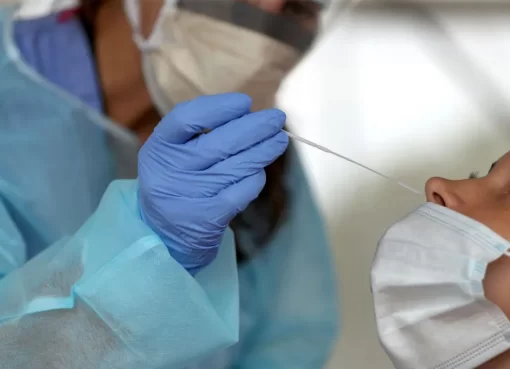If you frequently experience aches and pains in the facial area and find it hard to move your jaw, a temporomandibular joint (TMJ) disorder might be the culprit. This joint, which is situated on both sides of your face, connects the jaw to the skull.
Uncoincidentally, you may also experience gasping for air during your sleep, waking up with a headache, or a dry mouth. This may be due to sleep apnea. And believe it or not, it’s not uncommon to experience these two conditions contemporaneously as they are related; TMJ disorders might lead to sleep apnea, and vice versa. Read on to learn about the connection between TMJ and sleep apnea.
What Is Sleep Apnea?
Sleep apnea is a medical disorder that causes an individual to pause breathing while sleeping, leading to other effects such as loud snoring, insomnia or hypersomnia, and difficulty concentrating. This typically happens as the person rests for the night, but difficulty in breathing during the daytime is also possible. While there are many causes for this condition, obesity, chronic lung diseases, and TMJ are among the common ones.
To address this, healthcare providers prescribe the use of a Continuous Positive Airway Pressure machine or CPAP for short. This device delivers mild air pressure via tubing and a mask to keep breathing airways open while you sleep. Doctors may also prescribe other treatment options like oral appliances such as mandibular repositioning mouthpieces, and tongue retaining devices.
What Is TMJ Disorder?
Temporomandibular joint disorders, or TMD, occur when muscles and ligaments surrounding your jaw joints experience inflammation or irritation. This is usually caused by trauma, incorrect bite alignment, bruxism, arthritis, and even general wear and tear of the joints. Headaches, jaw soreness, ear pain, and facial discomfort are the typical symptoms of TMD.
TMD causes various effects, which may be acute or chronic depending on the severity; from hearing loss to chronic migraines, and even loss of balance. There are many ways to treat TMD, such as straightforward self-care techniques, medicine injections, and nonsurgical therapy. Doctors only opt for open surgery as a last resort option.
The Connection Between TMJ Disorder and Sleep Apnea
Sleep apnea and TMJ disorder can often result from one another. When the jaw joint is incorrectly aligned or positioned, the temporomandibular joint suffers a dysfunction that causes discomfort in the jaw joint and facial muscles – which often leads to breathing difficulties when sleeping. TMD is also frequently found to be connected to Chronic Fatigue Syndrome (CFS) which can worsen sleep apnea.
On the other hand, sleep apnea patients suffer from an airway collapse that reduces the airflow to the throat and upper airway. This triggers an automatic reflex of the body to protrude the jaw to make breathing easier, making the jaw joint misaligned.
The Importance of TMD and Sleep Apnea Treatment
Untreated sleep apnea can lead to more severe conditions like a heart attack. Getting treated for sleep apnea and TMD will not only lessen the likelihood of that happening, but it will also improve sleep quality, which produces multiple beneficial changes to the body. Other risks involved when this condition is left on its own include high blood pressure, stroke, diabetes, and glaucoma.
Though TMJ disorders usually come and go on their own, you can get physical therapy or medicine to deal with the discomfort. In minor cases of TMD, they are frequently treated with jaw opening and relaxation exercises, and anti-inflammatory drugs or muscle relaxants. For more extreme cases, corticosteroid injections, Botox injections, and surgery may be the viable solution.
Get TMJ and Sleep Apnea Relief Today!
Health being wealth is a commonly known fact. Taking care of the body that takes care of you should always be at the top of your priorities. This does not only mean getting the right nourishments, and exercising regularly; getting the right amount of sleep is just as necessary. It also means giving importance to rest.
If you’re experiencing any symptoms of sleep apnea or you feel you have TMJ problems, it’s best to get it checked right away. Get in touch with a TMJ and sleep apnea doctor right away for a check-up, and to learn more about what treatment is best for you if you do suffer from a TMJ disorder or sleep apnea.





